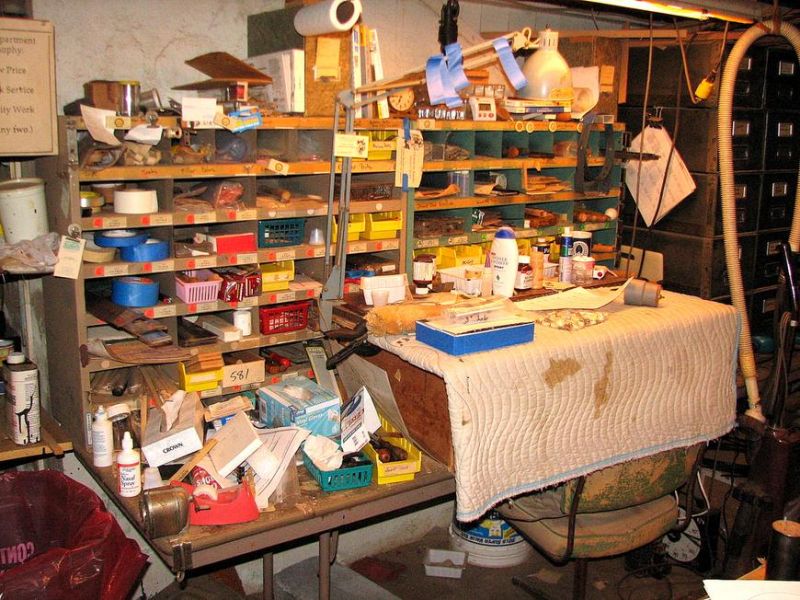Inspired by Taffy's account of recycling the odd bit into something useful, here are a collection of small but useful items and approaches I use in my shop.
1. Spice bottle toothpick dispenser - seems like I go through a lot of the round cross-section toothpicks when I'm building. Little clean-up jobs, pins for gluing bridges, all sorts of things. A former garlic salt dispenser works well for storing and dispensing toothpicks 1-2 at a time.
2. Protect the back of the Uke! - I slip a piece of hard plastic tubing over the small screwdriver that I use to tighten the screws that hold the ukulele tuners on to the peg head. The screwdriver tip is slightly recessed into the tubing so that if (when) I slip, the tubing will hit the back of the peg head rather than the screwdriver tip.
3. Somehow I obtained a 3' wide roll of brown, fairly heavy duty wrapping paper. I now routinely cover my work table with a layer of it, providing a clean, smooth surface for all sorts of things. It's great if you need to do a quick calculation, write down a phone number or draw a quick sketch as well. It's also good in that if you get little glue nubs that could ding wood, just quickly replace the paper and it's all good.
4. Inexpensive moving blankets or quilted picnic spreads also make for a soft working surface near the end of the building process. In addition, some doctors offices use terry cloth towels for patient examination only once and then discard them. They've only touched the skin surface and a quick washing makes them like new. They may be a little small but when sewn edge to edge, you can quickly come up with useful sizes.
5. Hardware store changing its display shelving? I picked up two of these for $5 each and now have dozens of cubby holes for parts storage right in front of my immaculate small work area.
http://www.ukuleles.com

6. Counter top places will often let you do a little judicious dumpster diving if you make sure to clean up. The Formica surface makes for a wonderful baseplate for all sorts of tools. Scrap Plexiglass is often sold by the lb for additional sources of router bases; I recommend at least 1/4" thick for this material to reduce flexing.
7. If your bandsaw has a recessed track, it's easy to make a 15 degree wedge that makes cutting the neck angle a breeze. I use 1'x 6" scrap and let a portion of it hang down into the track.
8. Are there fluorescent lights above your workbench that are a little close? Split rubber or plastic tubing its full length and clip it to the downward edge to avoid dings when moving instruments around the work table.
9. I use metal coat hangers to hang ukuleles in various stages of construction. The bottom horizontal section is cut in the middle and the ends bent into 3" diameter hooks which can fit into peg holes or soundholes easily.
10. The little natural rubber finger cotts found in stationary stores can really save your thumb and finger tips when doing a lot of chisel work.
11. Raise your work table. I have a variety of ways of raising the surface of my small work bench, depending on whether I want it at waist, mid-chest or upper chest level. Some are as simple as putting a hollow tile on the bench and covering it with a double thickness of toweling. Others use a 2' x 1' box with plywood sheet on it. The main work table uses blocks of 6"x8" or hollow tiles.
If anyone would like pics of these suggestions, please just ask.
aloha,
Dave Hurd